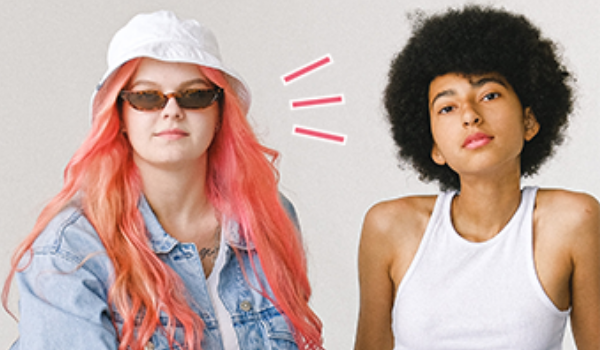I Take My Coffee Black
I love coffee, its alluring aroma, its gown-up taste, the buzz it offers, the latter so much so that my grandmother used to ward us off it, contending that coffee would make you ‘omnish,’ her vernacular for womanish.
Her warning has stayed with me for years, wondering what in the world she meant. If a sip of it was going to turn me into my graceful mother and her lovely sister sipping coffee in the early mornings over a past due catch up, after my aunt had made the gruelling 14 hour drive from Ohio, then I would happily suffer the fate of becoming ‘omnish’.
In hindsight, I think Mama, my gran, must have been protecting us from the drink’s bold taste, which can be too big for a child, and its addictive nature owing to caffeine and other perceived health hazards.
From being called the ‘new cocaine’ recently by a chatty London taxi driver, who notices coffee shop queues spilling onto the streets regularly, to being blamed for a many sleepless nights, anxiety and all the rest, coffee gets a bad rap.
And quite frankly some folks just don’t like it, my taxi driver being one of them. “I don’t see what people see in it. Can’t stand it.” He twisted his face much like a child who has tasted tar.
Though I have no basis to make the comparison to cocaine, I do know it can be addictive, but so can love if it becomes unhealthy. Okay, so an unfair comparison but you get my point.
All I am trying to say is that coffee does have a good side. No wonder its popularity on the high street and in hotels everywhere has surpassed other drinks of its kind.
For a small price to pay (relatively speaking) in a big-ticket world, people can indulge in an invigorating drink that gives them pleasure, if only for a little while, and something about it is binding to relationships.
We meet friends for coffee, make business deals over coffee, settle arguments over coffee and some find love over the hot stuff. We even catch up with relatives over it.
Remember my mom and her sister. Tid, our affectionate name for my mom, would add a dash of evaporated milk to hers and likely some sugar, but Auntie would take hers black, which is apparently the ticket to getting many of the benefits. Here, here to that. I take my coffee black.
According to recent research by Zoe Science and Nutrition, coffee has many benefits. Let’s be clear, drank in excess and at the wrong time, it can surely become a problem for some.
But if drank in the right dosage and at the correct time, (not before bed), it offers rewards such as improving microbiome diversity, cognitive function and healing damaged cells.
Go figure the beans have polyphenols, which are a type of antioxidant that has anti-inflammatory properties. According to the National Institutes of Health (NIH), all plants have polyphenols on some level and science is rapidly uncovering their benefits to human health.
I must say this is good news for me and coffee lovers everywhere. Still, it is best not to overdose. Experts say caffeine has an average half-life of about six hours. In short, that means if you have it three hours before you sleep, you might be in for an awakening that night.
For some time, I have come to love coffee in the early mornings or rely on decaffeinated coffee, particularly in the evening on the occasion that I grab a coffee after dinner.
Apparently, caffeine does provide some of the benefits to coffee that decaf lacks, but all is not lost, not even in taste. There are some good decafs out there. I should know. After all, I take my coffee black.









